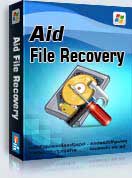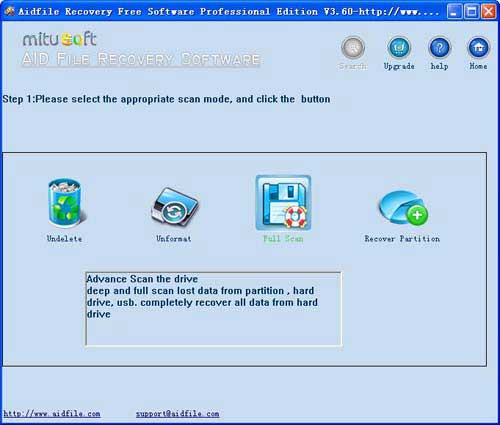BIOS not detecting SSDs (can't boot into Windows 11 & Windows 10) repair tool fix to do data recovery, best Windows 11 & Windows 10 file recovery software help you recover MS word,excel, pictures, music, video files from BIOS not detecting SSDs (can't boot into Windows 11 & Windows 10)
Use "unformat" to recover data from BIOS not detecting SSDs (can't boot into Windows 11 & Windows 10)laptop after quick format,full format,accidentally formatted,reformatting,High-level formatting,Low-level formatting.
Use "recover partition" to recover files from BIOS not detecting SSDs (can't boot into Windows 11 & Windows 10)laptop partition,lost partition,changed ,damaged partition.And if the size or position of partition is changed by format,It can not recover with "unformat"so you can use "recover partition"mode.
Use "undelete" to recover deleted files from BIOS not detecting SSDs (can't boot into Windows 11 & Windows 10)laptop after Virus attack,Recycle bin clear,disk cleanup,Press shift del by mistake,permanently empty recycle bin,shift delete ,accidentally deleted by a mistake.
Use "Full Scan" to recover data from BIOS not detecting SSDs (can't boot into Windows 11 & Windows 10)which can not be found with "undelete" and "unformat" and "recover partition",after showing an error,display as raw file system,unformatted,unknown partition,unpartitioned,needs to be formatted,or the file system is not exfat,not fat32,not ntfs.
"BIOS not detecting SSDs (can't boot into Windows 11 & Windows 10)" ,I've had some weird issues with SSDs in the past week or so - to start, about a week ago I got a message that the BIOS can't find a bootable drive. I started disconnecting my two Samsung SSDs one by one to try to isolate the issue, and once I disconnected the second, more recently purchased one (that didn't have a Windows installation on it), the system booted normally. After that succesful boot, I reconnected that SSD, booted into windows and everything worked fine - it recognized even that second SSD and I was able to use it as storage without any issues. However, 4-5 days after that, my computer froze, and after a restart I was back at the same issue. I disconnected that second SSD and was able to boot normally without it yet again. I figured that there must be something wrong with either the drive itself or with the cables (power and SATA) connecting it, so I tried connecting it to my roommate's PC (similar specs as mine, just newer hardware) and all we got was stuck on the Windows booting circle. I figured that the drive was busted and set it aside until I can find the warranty and go see what I can do with it, however... Today I try booting up my system with the first SSD (which has worked with no issues up until today) and a regular WD 1TB mechanical drive connected and I get the message that no bootable drive was found. If I disconnect the WD drive, I get transported straight to BIOS if I try to boot with the "No bootable device is detected" message, and if I try to setup boot priority in the BIOS, I can't select the Samsung SSD, nor is it found in the SATA configuration listings (all ports are listed as Empty, and I've double checked that none of them is disabled - none of them is, but they all have Hot Plug and External SATA disabled, if that's of any relevance). If I unplug that drive and plug in just the WD HDD, I can see that one in the BIOS, but of course I can't boot from it since there's no Windows installation on that one. Now, if those were both isolate cases I'd just assume that hard drives died - these are my first SSD drives and I have no experience and no way to assume how long they'll last (although at slightly over a year a half, I'd be both worried and pissed). However these 2 SSDs stopped working in such a short order of time that I'm worried there's something else going on - maybe with the BIOS or with the physical SATA controllers on the motherboard? This is much more problematic and weird than anything I've had issues on a PC yet so I'm just guessing though.
Aidfile Recovery Software Keyfeature
support FAT32 EXFAT NTFS and RAW file system
support Win32 (32 bits) and Win64 (64 bits)
Support Windows XP, Windows 8, Windows 8.1,Windows Vista, Windows 2003, 2008, 2012,Windows 11 & Windows 10,Windows 7 .
Desktop & laptops Ultrabook:HP Pavilion,HP Compa,Alienware Alpha,Lenovo ThinkCentre,Lenovo IdeaCentre,Dell Inspiron,Dell XPS,Sony VAIO,Acer Aspire,Asus Transformer,Dell Latitude,Samsung Ativ Book,Asus VivoBook,HP Envy,Lenovo IBM ThinkPad,Lenovo IdeaPad Yoga,Microsoft Surface,Toshiba Satellite
MS Office document (Word, Excel, PowerPoint, Outlook) types (doc, docx, ppt, pptx, xls, xlsx, pst, etc.),photos (JPG, PNG, ICON, TIF, BMP, RAF, CR2, etc.), videos and audios (MPG, MP4, MP3, MTS, M2TS, 3GP, AVI, MOV, RM, RMVB, etc.), compressed files (rar, zip, etc.), PE files (exe, dll, lib, etc.) and so on.

